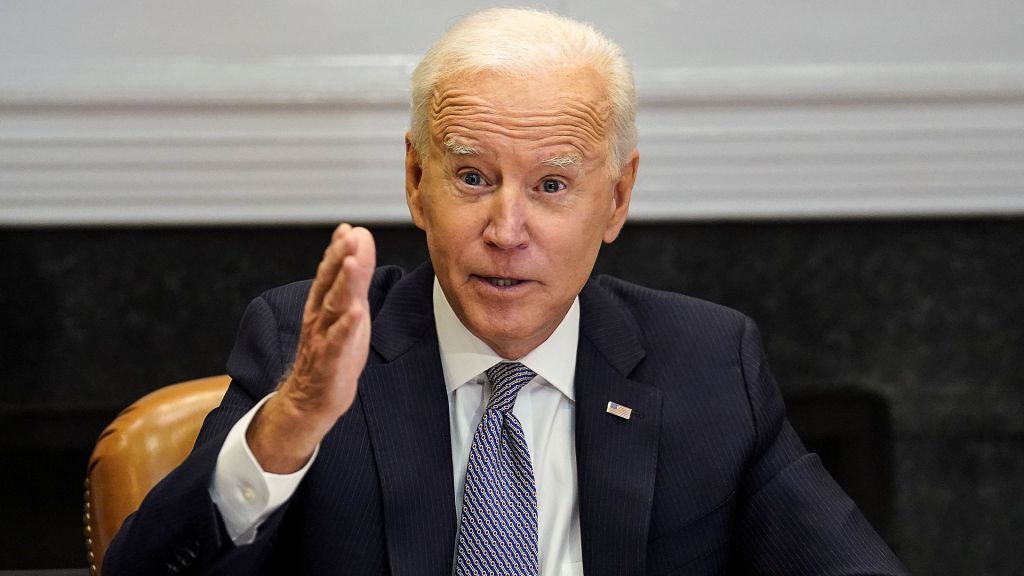As tributes pour in to remember what happened during the Jan. 6 riot at the Capitol, as well as the lives lost following it, some experts are shifting their focus forward. An unclassified report from the Office of the Director of National Intelligence (ODNI) indicates Americans should be aware of the possibility of lone wolf terror attacks. The report says that is more likely that an organized event similar to what happened Jan. 6, 2021.
“I think Jan. 6 was unique in the sense that you had a very senior level political figure bring people to Washington D.C., he had this convening authority that we really aren’t going to see in 2022,” explained Jason Blazakis. He is the director of the Center on Terrorism, Extremism, and Counterterrorism at Middlebury Institute of International Studies. “We’re not going to see President Trump in the Capitol or outside of the White House, calling people to come to Washington, D.C. of all stripes to come and to challenge the results of the 2020 election. That kind of animating force doesn’t exist right now. But what does exist are those underlying grievances that individuals may harbor.”
During a speech in June, Attorney General Merrick Garland announced “the two most lethal elements of the domestic violence extremist threat are ‘racially or ethnically motivated violent extremists, and militia violent extremists.’”
“In the FBI’s view, the top domestic violent extremist threat comes from ‘racially or ethnically motivated violent extremists, specifically those who advocated for the superiority of the white race,’” Garland said. Blazakis argues while the latter half of 2021 may have seemed calm, it could be the calm before the storm.
“A lot of people may think that the time has passed and we’re moving forward as a country and things are going to be safer, but I’ve actually taken the opposite tack. I actually think we remain to be in a really dangerous part in American history right now, where we have individuals who continue to subscribe to white supremacist theories,” Blazakis said. “We have a really active militia movement in the United States and conspiracy theories, especially disinformation and misinformation regarding vaccines, and masks and things like that are really driving a lot of grievances.”
The ODNI report from March supports Blazakis’ concerns, stating “newer sociopolitical developments—such as narratives of fraud in the recent general election, the emboldening impact of the violent breach of the U.S. Capitol, conditions related to the COVID-19 pandemic, and conspiracy theories promoting violence—will almost certainly spur some [domestic violence extremists] to try to engage in violence.” Blazakis is concerned of more attacks similar to ones carried out in Pittsburgh, Pennsylvania and El Paso, Texas.
“You had individuals that had these grievances in the case of [Robert] Bauers, driven by anti-semitism,” Blazakis said. “In the case of the El Paso shooter, [Patrick] Crusius says he was motivated by the idea that the United States was going through some kind of great replacement, and that people from south of the border were were coming into United States, to change the body politic of the United States.” Blazakis believes misinformation and disinformation play a major role with domestic violent extremists.
“Mis- and disinformation is a key ingredient for individuals who are engaged in manipulation online to motivate individuals to try to do something in the real world, not just spout off inflammatory rhetoric on Twitter or Facebook and try to challenge their their friends to do something in the online sphere, actually can push people to doing real world harm. It could do real world harm to themselves,” he explained. “Mis- and disinformation, in particular for me, as we go into the 2022 midterm election is going to be perhaps one of the most important things for us to observe as an inflection point that can lead individuals toward violence.”
Recent polling from CBS/YouGov found immediately follow the Jan. 6 riot, 87% of people polled disapproved of what happened. A year later, that number fell to 84%. Blazakis said the falling numbers aren’t a surprise, but warned “as those numbers actually go down, I think it puts us at greater risk.” He believes misinformation has led to that change.
“A lot of people I think now, unfortunately, saw that as some kind of justifiable act to press against some kind of election chicanery, and and I think a lot of people buy that because of misinformation circulating online,” he said. “I wouldn’t be surprised that those numbers continue to drop over time. Because, as you move away from an event, you do have more and more mis and disinformation.”
According to the ODNI report, “lone offenders will continue to pose significant detection and disruption challenges because of their capacity for independent radicalization to violence, ability to mobilize discretely, and access to firearms.”
In June, the Biden Administration released its National Strategy for Countering Domestic Terrorism plan.
“We have to take both short–term steps to counter the very real threats of today and longer–term measures to diminish the emerging threats of tomorrow,” the White House stated.
Blazakis agrees, but in his Los Angeles Times op-ed, he stressed that he hopes federal agencies won’t try to overreach in the name of countering domestic terror. He reiterated to Straight Arrow News “you already have these existing grievances, then you have an attack that could actually lead to some kind of change of government posture that can really exacerbate the situation. That’s my primary concern, this government overreach that could lead to the United States trying to monitor people in ways that are inappropriate.”
“That’s another reason why I’ve actually argued that it’s time now to think about course corrections before a big attack because when a big attack happens, law makers, people in positions of power that they may want to respond on an emotional basis,” Blazakis said. He argued the emotional response following the Sept. 11, 2001 attacks led to actions like enhanced interrogation, which is likened to torture. Blazakis said that is why the time to act is now.
“I don’t think we’re out of the woods yet,” Blazakis said. “I do think that we are in a time period, especially during the midterm election that is also quite fraught, and we are in a precarious time.”






